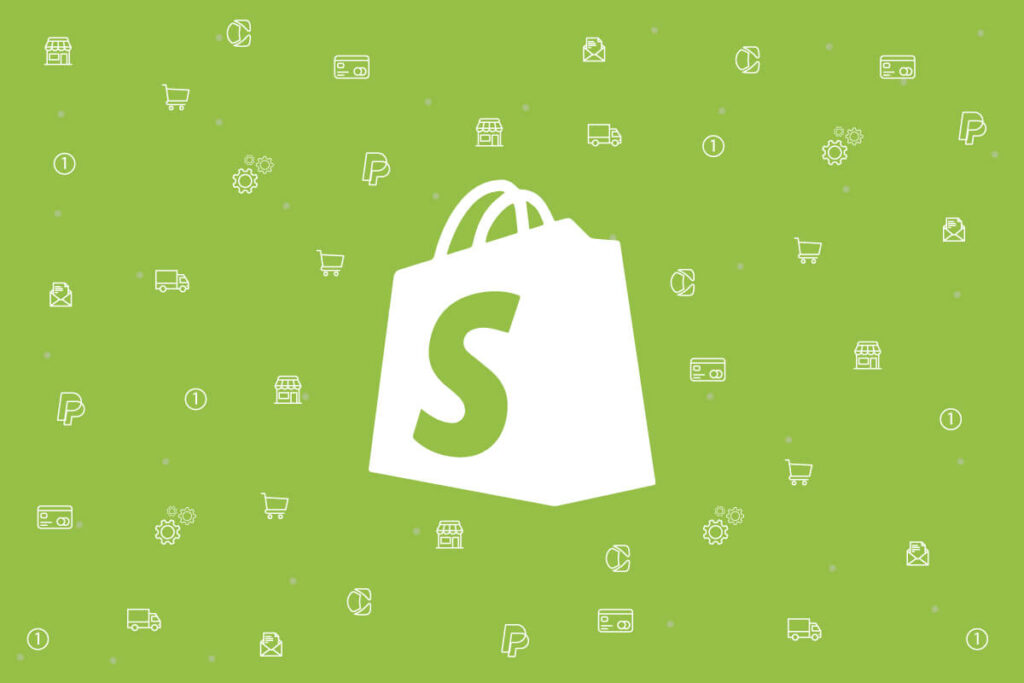Shopify is considered to be one of the best platforms for launching an e-commerce store in the international market, particularly excelling in the creation, development, customization, and optimization of Shopify eCommerce stores. Shopify functions allow you to sell physical and digital goods without any programming skills. We recommend this particular builder for developing an e-commerce store website, as it provides a wide range of tools and plugins, as well as a built-in payment system.
However, Shopify has drawbacks that are important to know about to be able to work with this platform. In this article, we will share the strengths and weaknesses of Shopify so that you can draw your conclusions about it.
Which Shopify store development is right for
Shopify is suitable for those who want to:
- Sell on foreign markets
- Launch an online store as fast as possible
- Get a beautiful product catalog
- Combine several sales channels in one place (online store, Google, Instagram, Amazon, etc.)

To assist users in leveraging Shopify for their specific needs, including entering foreign markets and launching online stores quickly, our team of Shopify development experts is available. They are skilled at creating reliable, cost-effective, user-friendly Shopify stores, offering a personalized approach and the ability to handle any pain point in Shopify development.
Advantages of Shopify store development: how Shopify functions work
Large Shopify functions set
The basic idea behind Shopify is for merchants to have all the tools they need to run an e-commerce website. Hosting, data protection, and SEO are already integrated into the platform. You also have at your disposal a library of templates and add-ons that will allow you to expand the functionality of the future trading platform.
Shopify analogs, such as Magento or WordPress, are more complex to work with, as when using them, you will need to put together several elements, each developed by different people. This means separate payment accounts, dashboards, and generally more confusing customization.
You can also combine Shopify with other marketplaces you’re working on. For example, with the Etsy marketplace. To find out how to do this, read the link.

Ability to sell anything
Shopify functions are universal. It allows you to grow any business and supports a large number of products, from physical goods to gift cards.
Everything for online commerce
All the main tools of online commerce are united in one place: the online store, inventory control, CRM, loyalty systems, analytics, and advertising.
Ready-made integrations
Ready integrations with payment systems and delivery services (100+ options) for sales in any country in the world.
Shopify functions work on the fast store launch
The high speed of creating a store on Shopify is possible due to a large number of ready-made elements, their consistency, and the ability to make a simple Shopify store in the builder mode (for something more advanced, you will need a developer).

A diverse selection of Shopify themes
Shopify theme development offers 125 themes, including 114 paid themes. As a result, you can get many different design options when Shopify stores are developed. Each theme has unique features and tools. You can also buy themes from third-party developers.
Quality design templates. In the Shopify template store, you can find very good options for store templates. It will be enough to upload your content, and you already have a quality store that looks great.
Integrated advertising and marketing tools
Shopify’s control panel allows users to work on SEO, send emails, and manage the company’s social media accounts. For example, run Facebook ads, interact with customer groups, and send personalized email newsletters.
Multichannel. Advertising and sales management in one place: sales through marketplaces, contextual advertising, email marketing, advertising in social networks, etc.
Security Shopify functions
Working with Shopify’s online store builder, you won’t have to install additional security plugins (encryption and two-factor authentication). All these components are already built into the platform. You can also find out more information about Shopify functions.

Wide range of Shopify app development
Shopify App Store has 4000+ apps for extending functionality. Most of them are paid and distributed based on monthly payments. But there are also free ones, as well as apps with free rates.
Shopify App Store offers thousands of apps, most of which you don’t have to pay for. The most popular are integrations for:
- accounting;
- product search;
- SEO;
- shipping;
- conversion rate increase;
- advertising and marketing.
Payment Processing
Shopify’s online store can process international payments using over a hundred technology solutions, which include Stripe and Paypal. Shopify Payments, on the other hand, guarantees easy order management, clear pricing, and allows you to optimize refunds. Country-specific payment instrument options available can be found on the official Shopify website under the “Payment Gateways” tab.

Shopify POS
Shopify POS allows you to synchronize online and offline sales. With it, retailers get all the tools they need to manage day-to-day operations, accept payments anywhere, and build relationships with their customers.
Support Services
Users have access to support through platform experts and online resources:
- the help center has official platform documentation, training videos and articles;
- in the forum, you can discuss various professional topics with other users, find useful links and groups for collaboration;
- Online support from the platform’s Shopify admin is available 24 hours a day, and you can use Instagram, Facebook, and Twitter accounts as a communication channel.
Shopify development services
Shopify continues to actively develop; today, there are more than four million websites on it.
Large developer community Shopify website development services. Shopify has a large number of freelancers and agencies working on it. So you won’t be left without technical support.

Shopify disadvantages
Ongoing fees
The monthly subscription fee ranges from $39 to $399, depending on the chosen plan. To this amount, you will need to add commissions from the sale of goods, app fees, and additional plugins.
Expensive paid themes and few free ones
Originally, Shopify had a lot of free themes, but their number is constantly decreasing and the cost of paid ones is steadily increasing. Now, their price ranges between $180 and $350. The payment is one-time, so once you start trading, the cost can be quickly recouped.
Paid payment processing outside of Shopify
Shopify processes payments by charging a fee starting at 2.4% + 30 cents per transaction. Using a third-party payment gateway, you will need to pay the fee of your chosen payment processor and, additionally, a Shopify fee of 0.5 to 2% for each order placed.
Risk of app price hikes
The Shopify website allows you to work with apps, which is important when creating an online store and scaling it further. Plugins compensate for the lack of some basic e-commerce options on the core platform but increase monthly overhead costs.

An underdeveloped interface for blogging
Shopify’s functionality suggests a blogging interface as an additional tool for attracting potential customers. Compared to WordPress, the blogging option is implemented rather primitively. This is because the option is considered optional, but in the future, it is planned to create a more functional and user-friendly interface.
Unpopular programming language
The programming language used by WordPress and Magento is based on the familiar standards of PHP, CSS, and HTML. Shopify is built on Ruby backend logic with the Liquid programming language. Which makes it difficult to integrate with other systems.
It is difficult to migrate to other CMS platforms
It’s impossible to take and export function code files from a web page to publish them on another platform, as Shopify uses a unique programming language. This means that when leaving Shopify, the site will have to be completely redesigned, starting online store development practically from scratch.
English language in the interface and templates
All Shopify templates are in English by default. If you want to create a site in another language, some elements will have to be translated yourself. This may increase the development time of the store.
Possibility of blocking
If you don’t comply with Shopify’s terms of use, your store may be blocked. This happens in rare cases and most often during the process of linking a bank card.

You don’t own the site
Shopify is a cloud-based platform. The website files are hosted on the platform. And it’s as if the store is on a lease. Plus, not all files can be accessed.
You can’t edit the Checkout
You can’t edit the checkout page on regular plans (this option is only available in Shopify Plus, which costs $2,000 per month). This makes it difficult to set up your analytics, as well as the integration of Novaya Posta (selection of delivery branches) if your store is for the Ukrainian market.
Limited site optimization options
There is no access to the hosting settings. Also, there is no access to many system files. Therefore, the possibility of optimizing the performance of the site is quite limited. And the more you develop your store, and install new applications, the harder it is to have a fast site.
High commissions for accepting payments online
To pay the lowest commission of 2.4–2.9%, you will have to try. Because this is only possible with Shopify Payments, which is not available in all countries. For example, with Fondy, you will have to pay 3.8–4.4% commission (but this only applies to orders with card payment online and does not apply to orders with cash on delivery).
Conclusion
Shopify has significant limitations. How Shopify functions work, we’ve dealt with above. But, on the whole, Shopify functions’ advantages still outweigh them. Ultimately, Shopify store development is chosen for its “all-in-one”: online store, advertising, sales through different channels, the ability to quickly develop the store through the Shopify app store, and the ability to scale to different markets. You can also learn about such marketplaces as Temu and Amazon.
